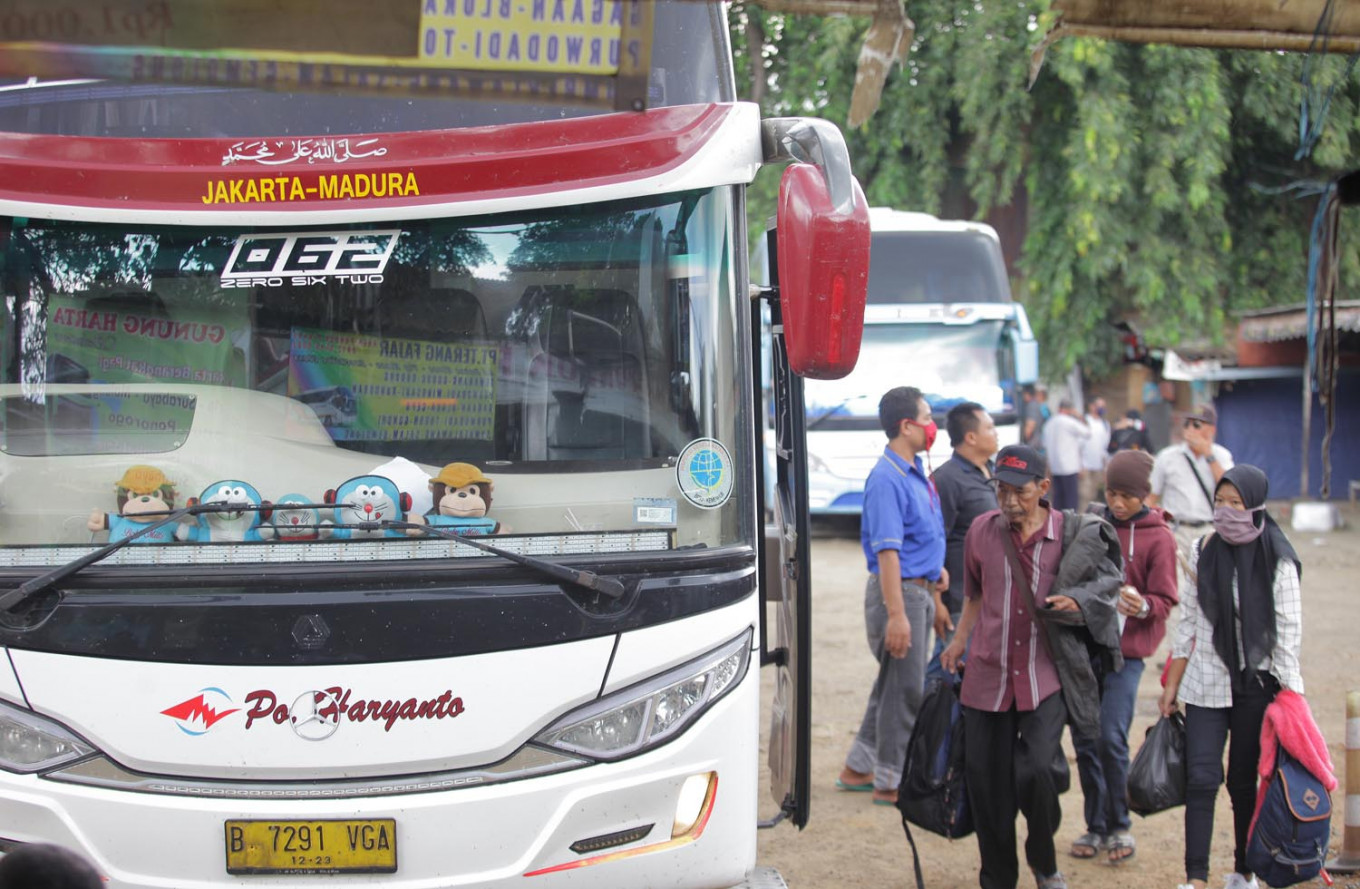Popular Reads
Top Results
Can't find what you're looking for?
View all search resultsPopular Reads
Top Results
Can't find what you're looking for?
View all search resultsCoronavirus outbreak may end in June with 'mudik' ban: IDI
IDI deputy chairman Slamet Budiarto said the mudik (exodus) ban, coupled with the extension of large-scale social restrictions (PSBB) currently in place in virus-plagued areas, would help clamp down on COVID-19 transmission.
Change text size
Gift Premium Articles
to Anyone
T
he central government’s ban on the Idul Fitri tradition of mudik (exodus) is likely to help break the chain of COVID-19 contagion in the country and may cause the nation’s outbreak to end in June, according to the Indonesian Doctors Association (IDI).
IDI deputy chairman Slamet Budiarto said the mudik (exodus) ban, coupled with the extension of large-scale social restrictions (PSBB) currently in place in virus-plagued areas, would help clamp down on COVID-19 transmission.
"With the mudik ban and extended PSBB, I predict the [nation’s outbreak] may end in June," Slamet said as quoted by tempo.co on Tuesday.
President Joko "Jokowi" Widodo announced on Tuesday a nationwide ban on this year’s mudik. Previously, his administration had only advised the public to avoid the tradition this year, stopping short of an outright ban.
He announced the ban after reading a Transportation Ministry survey that found that 24 percent of the country's 270 million people still planned to leave for their hometowns and that 7 percent had already left.
Read also: MUI: ‘Mudik’ from virus-affected areas 'haram'
About 20 million people from Greater Jakarta return to their hometowns annually to celebrate Idul Fitri in the tradition of mudik. The expected volume of travelers had previously raised concerns of wider contagion. Public health experts said it could cause the coronavirus to spread on a massive scale across Java.
Jakarta and its satellite cities are among the hardest-hit areas in Indonesia. The capital itself is the national epicenter of the virus.
Without the mudik ban, a number of people would have unknowingly carried the virus to their hometowns, Slamet said, which could have created a second wave of the disease.
“Jakarta might have eventually flattened the curve, but [if mudik were not banned] the outbreak epicenters would have shifted to villages,” he said.
As of Wednesday, Indonesia had confirmed 7,418 cases of COVID-19 with 635 deaths. Of those, Jakarta had reported 3,383 cases and 301 deaths, nearly half the country’s cases.
Critics, however, have said that Jokowi's mudik ban came too late as thousands of people had been returning to their hometowns since late last month. (aly)










